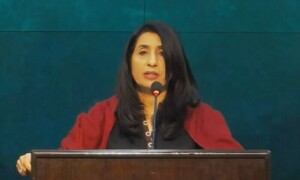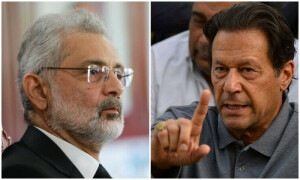THE second president of the United States, John Adams, predicted in 1780 that “English will be the most respectable language in the world and the most universally read and spoken in the next century, if not before the end of this one”.
It is destined “in the next and succeeding centuries to be more generally the language of the world than Latin was in the last or French is in the present age”. It was a bold prediction, for at that time there were only about 13 million English-speakers in the world, almost all of them living in Britain or on the eastern seaboard of North America. They were barely one per cent of the world’s population, and almost nobody except the Welsh and the Irish bothered to learn English as a second language. So how is Adams’s prediction doing now?
Well, it took a little longer than he thought, but last week one of the most respected universities in Italy, the Politecnico di Milano, announced that from 2014 all of its courses would be taught in English.
There was a predictable wave of outrage all across the country, but the university’s rector, Giovanni Azzoni, simply replied: “We strongly believe our classes should be international classes, and the only way to have that is to use the English language.” The university is not doing this to attract foreign students but mainly for its own students who must make their living in a global economy where the players come from everywhere — and they all speak English as a lingua franca.
Many other European universities, especially in Germany, the Low Countries and Scandinavia, have taken the same decision, and the phenomenon is now spreading to Asia. It is extremely rare to meet a scientific researcher or businessperson who cannot speak fluent English. How else would Peruvians communicate with Chinese?
But wait a minute. Peruvians speak Spanish, the world’s second-biggest language, and the Chinese have the largest number of native speakers of any language. Why don’t they just learn each other’s languages? The choice has fallen on English because it is already more widespread than any other language.
Mandarin Chinese has been the biggest language by number of speakers for at least the last 1,000 years, and is now used by close to a billion people, but it has never spread beyond China in any significant way. Spanish, like English, has grown explosively in the past two centuries: each now has over 400 million speakers. But Spanish remains essentially confined to Central and South America and Spain, while English is everywhere.
There is a major power that uses English in every continent except South America: the US in North America, the UK in Europe, South Africa in Africa, India in Asia, and of course Australia where the entire continent speaks it. All of that is due to the British empire, which once ruled one-quarter of the world’s people. For the same reason, there are several dozen other countries where English is an official language.
English had become the first worldwide lingua franca. Never before has any language had more people learning it in a given year than it has native speakers; English has probably now broken that record as well. The amount of effort that is being invested in learning English is so great that it virtually guarantees that this reality will persist for generations to come. However, Italians, Chinese and Arabs are not going to stop speaking their language to one another. But they will all speak English to foreigners.












































